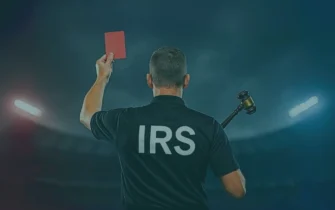By The Guillen Pujol CPAs Newsroom
The Internal Revenue Service has issued more than 32,000 penalties totaling over $162 million after a surge in social media tax scams promising quick refunds through tax credits that don’t apply. The pattern is tied to promises of fast refunds with unnecessary or insufficient documentation and to pressure on taxpayers to amend returns even when they do not qualify. Posts encouraging taxpayers to misuse the Fuel Tax Credit or the expired Sick and Family Leave Credit have fueled thousands of frivolous filings, leaving many business owners exposed to audits, denied refunds, and steep fines.
For business owners, falling into something like this can have an immediate impact on cash flow and create significant regulatory risk. Refunds can be delayed or denied, civil penalties of $5,000 for filing a frivolous return under IRC §6702 may apply, and scrutiny from the IRS can increase if a pattern suggests misleading disclosures or ineligible claims. This is why business owners must be prepared and know how to act—whether to prevent problems in advance or to respond effectively if your business is already facing one of these situations.
Why Business Owners Are Especially at Risk
Viral “tax hacks” on social media claim that everyone qualifies for high-value credits, most notably the Fuel Tax Credit, intended mainly for off-highway uses such as agriculture, and the Sick and Family Leave Credit, which applied only in 2020 and 2021 and has since expired. Yet, some posts still instruct taxpayers to claim these credits or amend returns for years when they no longer apply. The IRS has reported repeated misuse of Form 7202 and claims based on employees who clearly do not meet the criteria.
The appeal lies in the promise of quick money, often with little or no documentation, and in advice to amend past filings through generic templates or vague “steps.” This messaging bypasses the details that determine eligibility—such as tax years, taxpayers’ profiles, and conditions of use—creating a false sense of urgency that drives frivolous claims.
Business owners are especially vulnerable because they manage multiple filings, depend on refunds to support cash flow, and may have team members who follow social media advice without proper validation. Many also fear missing out on a supposed universal tax benefit, which raises the likelihood of rejected claims, financial penalties, and extended IRS reviews that can bring costly delays and reputational damage.
What the IRS Recommends When Facing Cases Like This
The IRS has been clear:ignoring notices is never an option. Every letter requires a response, and setting one aside only increases penalties and delays refunds. For businesses, that means liquidity risks and added legal and administrative costs.
If a return was filed with an ineligible credit, the proper step is to amend it promptly using Form 1040-X or other applicable forms. This process should be centralized, with a designated lead, document decisions, and traceable records of the correction.
Another important step is reporting suspected fraud whenever there are signs of a scheme. The IRS asks that such cases be sent to [email protected] or filed with TIGTA. And before projecting a refund or moving money in cash flow planning, eligibility should always be verified directly on IRS.gov rather than relying on social media. A licensed CPA can play a key role here, ensuring that what looks like an “opportunity” is legitimate.
It’s also critical to understand the magnitude of the penalty. Internal Revenue Code §6702 allows fines of up to $5,000 for each frivolous return. For businesses, this is more than a one-time loss—it can trigger audits and heighten regulatory exposure, with direct consequences for operations. The good news: with early awareness and professional guidance, these risks can be avoided.
Red Flags to Spot Before Falling for Something “Too Good to Be True”
These scams follow recognizable patterns that business owners can learn to identify. The most common is the claim that “everyone qualifies” for highly specific credits. In reality, the Fuel Tax Credit applies mainly to off-highway uses such as agriculture, and the Sick and Family Leave Credit was limited to 2020 and 2021. These rules exclude most taxpayers, despite what viral posts suggest.
Another warning sign is the promise of quick refunds paired with requests for minimal or irrelevant documentation. Credits require strict proof of eligibility; filing without it almost guarantees denial and penalties.
Some schemes go further, advising people to ignore IRS letters or to respond with fabricated information. This is a critical red flag—not only for business owners, but also for individual taxpayers—since it invites more severe scrutiny and legal consequences. Equally dangerous is the claim of “secret knowledge” the IRS supposedly doesn’t want taxpayers to know.
Red flags also appear in the filings themselves: perfectly round numbers, copy-paste text, or generic descriptions in supporting documents. Technically, they include attempts to claim the Fuel Tax Credit without evidence of off-highway use, or to apply the Sick and Family Leave Credit beyond 2021.
How a Licensed CPA Protects Your Business From Social Media Tax Traps
A licensed CPA provides what viral videos and generic guides cannot: real verification of eligibility. Each credit is checked against actual facts, tax laws, valid years, and supporting documentation. What looks like a shortcut online often fails under IRS review, but a CPA ensures your filings are grounded in what truly applies to your business.
They also prepare documentation that can withstand IRS scrutiny, from expense receipts to proof of qualifying use in specific credits. Even before amending a return, a CPA can assess whether correction is worthwhile or whether the risks outweigh the benefit.
When direct interaction with the IRS is required, a licensed CPAcan manage notices, structure responses, and represent your business before the agency. Their standing reduces administrative burden and minimizes costly errors.
If You Already Filed a Questionable Claim—or Are Facing Issues Now
If your business has already claimed credits that may not be valid, the right steps can mean the difference between a costly penalty and a manageable correction. A CPA can guide you through a structured response:
- Conduct an internal review of credits claimed and the tax years involved to identify potential exposure.
- Map out the amendment path, often through Form 1040-X, with documentation strong enough to support the correction with the IRS.
- Handle IRS letters with professional responses, provide the required records, and track deadlines to prevent escalating penalties.
Taking these actions quickly restores control and positions the business to face scrutiny on solid ground. The earlier the response, the more options remain to resolve the issue and protect both financial stability and credibility.
About Our Firm
Guillen Pujol CPAs (GPCPAs) is a CPA firm with over 35 years of experience advising companies in the U.S. and internationally. We help owners and leadership teams stay compliant, reduce regulatory exposure, and make informed tax decisions—especially when risks arise from credit claims promoted on social media or from IRS notices.
How We Help Businesses Stay Prepared
IRS response and representation. We manage notices and information requests, draft technical responses, and—when appropriate—formally represent your company before the IRS. We prioritize timelines and evidence to mitigate penalties and stabilize cash flow.
Credit review and orderly correction. We quickly audit claimed credits (e.g., Fuel Tax Credit, Sick & Family Leave Credit), verify real eligibility by facts and tax years, and map the amendment path (e.g., Form 1040-X) with a support package that can withstand review.
Outsourced accounting with traceability. Our outsourced accounting produces audit-ready documentation (books, reconciliations, supporting schedules) that helps substantiate positions with the IRS and accelerates responses if exams or letters arise.
End-to-end corporate compliance. We keep entities in good standing (annual reports, BOI/FinCEN, registered agent, corporate books and resolutions), reducing the risk of fines, suspensions, or governance gaps that complicate tax processes.
Federal, State, and Local tax consulting. We design and execute strategies to optimize tax burden while maintaining multi-jurisdictional compliance (including Florida), coordinating with legal counsel when needed.
International reach when applicable. For groups with cross-border operations or assets, we provide international planning and compliance—from entity selection to reporting and treaty analysis—balancing risk and benefit in practical terms.
If your company has already filed a questionable claim or is receiving IRS letters, we can run a confidential initial review to size the exposure, set priorities, and regain control—well-supported amendments, on-time responses, and a preventive plan to avoid repeat issues.
Take Action Now: Need professional tax guidance? Contact us today.
Planning Tomorrow, Together, with GPCPAs.
Trusted by Businesses Worldwide
Editor’s Note: This post is part of the ‘GPCPAs Info Hub,’ an initiative dedicated to empowering you with the knowledge and strategies needed to navigate the complexities of the U.S. tax system and financial strategies. Visit our Information Hub, a curated resource offering the latest in tax, economic, and business news, alongside actionable guidance on tax strategies, accounting, and business advisory—because Planning Tomorrow starts here.
- Florida’s Hunting, Fishing & Camping Sales Tax Holiday 2025: A Guide for Shoppers & Businesses
- Navigating the ‘One Big Beautiful Bill’: Implications for Global Tax Planning
- How International Investors Can Reduce U.S. Taxes in 2025—Legally
- IRS Imposes $162M in Penalties Over Social Media Tax Scams: What Business Owners Should Know
- IRS Refunds After Paper Checks End in 2025: FAQs for Expats and Non-Residents











